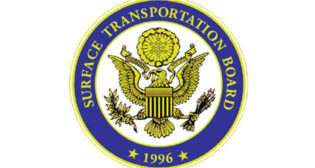
STB Eyes Alternatives to URCS (UPDATED May 25)
The Surface Transportation Board (STB) in October 2022 sought public comment on a new report that identifies and evaluates alternatives to the Uniform Railroad Costing System (URCS) that could be used as a replacement general-purpose costing methodology. The Association of American Railroads (AAR) and the Western Coal Traffic League (WCTL) respond.